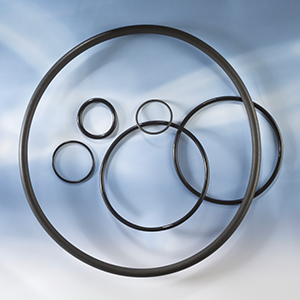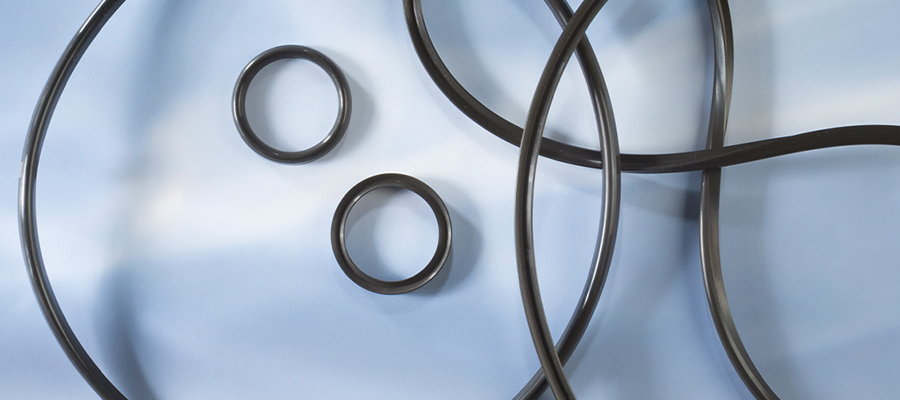FKM vs FFKM

Understanding the differences between FKM and FFKM materials is critical in determining the right sealing solution for each application.
What is FKM?
 FKM is the ASTM designation for a class of fluorinated, carbon-based synthetic rubber, commonly known as fluoroelastomer. Its impressive heat resistance allows FKM seals to withstand temperatures greater than 200°C. FKM also exhibits extraordinary levels of resistance to high pressures, chemicals, and other fluids – including several fuels.
FKM is the ASTM designation for a class of fluorinated, carbon-based synthetic rubber, commonly known as fluoroelastomer. Its impressive heat resistance allows FKM seals to withstand temperatures greater than 200°C. FKM also exhibits extraordinary levels of resistance to high pressures, chemicals, and other fluids – including several fuels.
FKM was originally developed in the late 1950s in response to demand for high performance seals in the aerospace industry. Continued development brought new advancements including greater thermal stability and improved heat, solvent, and compression resistance.
Today, FKM materials are commonly used to manufacture O-rings, seals, and gaskets for critical applications in automotive, aerospace, energy, semiconductor, and industrial operations.
What is FFKM?
FFKM, or perfluoroelastomer, contains higher amounts of fluorine than standard FKM, resulting in higher temperature ratings (up to approximately 325°C/617°F) and improved chemical resistance with nearly universal chemical compatibility. This combination of high-performance capabilities makes FFKM seals the premium choice for industry’s most demanding applications.
The first commercially available FFKM seal was produced in the late 1960s, though widespread manufacturing of FFKM materials did not occur until the late 1980s due to patent restrictions.
FFKM is used in O-rings and seals in environments with high temperatures and/or harsh chemicals in the aerospace, semiconductor, energy, pharmaceutical and industrial operations.
When it Can’t Fail, Choose Greene Tweed FKM and FFKM Solutions
Greene Tweed offers a vast portfolio of FKM and FFKM sealing solutions to meet the demands of industry’s most critical applications.
Greene Tweed’s proprietary FFKM material, Chemraz®, has the broadest chemical resistance of any elastomeric material, combining the resilience and sealing force of an elastomer with chemical resistance approaching that of PTFE.
FKM vs FFKM
Let’s connect to see how FKM or FFKM can support your business goals.
